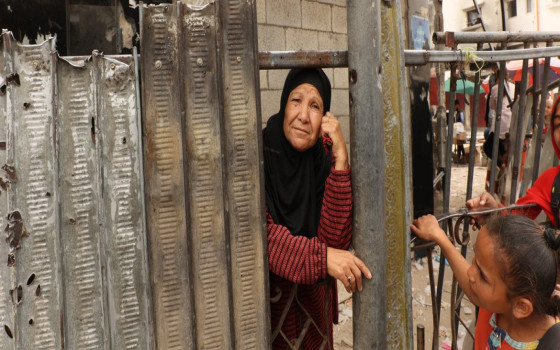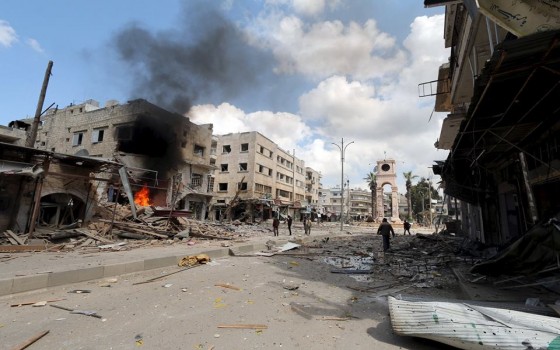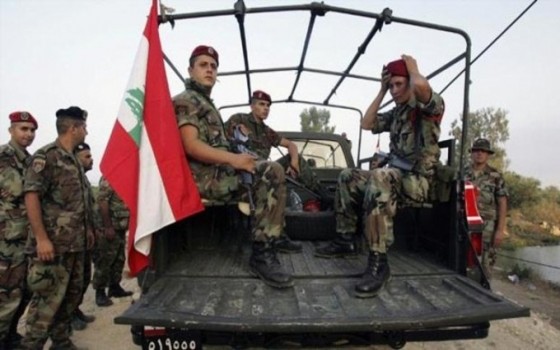
UN: Hunger and fighting fuel despair among all Gazans. Residents "have become envious of the dead." Living conditions are unbearable and their costs are among the highest in the world.

- Europe and Arabs
- Wednesday , 11 June 2025 10:49 AM GMT
Gaza: Europe and the Arabs
The United Nations Office for the Coordination of Humanitarian Affairs (OCHA) warned that hostilities and hunger in Gaza "continue to fuel despair among more than two million people who lack the basic necessities of life," amid reports of ongoing Israeli military operations. According to the UN Daily News Bulletin, "Gaza's markets are teeming with people, but they lack two essential elements: liquidity and goods. Suffocating Israeli restrictions, which have prevented anything from entering the Strip for 80 days, have reduced the goods allowed in through the Kerem Shalom crossing in recent weeks to a mere drop in the ocean of needs.
Most Palestinians in Gaza face three choices, both of which are bitter: either seek a food ration from the military aid mechanism, in which dozens have died in recent days; or watch their children starve; or pay dearly for what remains of the goods and looted humanitarian aid in the markets.
No one can describe this situation better than someone living it. Akram Yousef, a civil servant, told a UN News correspondent in Gaza: "Prices are abnormal and much higher than in Europe. The situation is very difficult, and we have been like this for two years. In addition to displacement, homelessness, bombing, destruction, and devastation, merchants are raising prices, and citizens are unable to bear this burden. What can we do?
More than 20 months of conflict have made living conditions in the Gaza Strip unbearable, and the cost of living is now among the highest in the world.
At a daily press briefing in New York on Tuesday, UN Deputy Spokesperson Farhan Haq said that Israeli military operations in northern Gaza have intensified in recent days, with large numbers of casualties reported. Israeli authorities in the area have issued four new displacement orders, largely overlapping with previous ones. “The latest of these orders was reportedly in response to Palestinian rocket fire into Israel,” Mr. Haq said.
Meanwhile, the UN Deputy Spokesperson reported that “starving and displaced people have been killed while risking their lives to access food at military distribution centers.”
In response to questions from journalists, Mr. Haq said that conditions at non-UN aid distribution sites “are not safe,” adding that “this cannot be the way people are expected to receive humanitarian assistance.”
The Office for the Coordination of Humanitarian Affairs (OCHA) emphasized the need to protect civilians and enable them to receive the humanitarian assistance they need. Wherever they are, in accordance with international humanitarian law.
On the ground, the United Nations was able to collect some supplies on Tuesday, mostly flour, from the Kerem Shalom crossing. Mr. Haq said the aid was destined for Gaza City when it was "taken directly from trucks by hungry and desperate people who have endured months of deprivation," as has happened in most cases since the Israeli authorities allowed limited amounts of aid into Gaza on May 19.
There have also been some instances of looting and attacks on truck drivers by armed groups, something the United Nations categorically rejects. In this context, the Office for the Coordination of Humanitarian Affairs emphasized that Israel, as the occupying power, bears a responsibility to maintain public order and safety in Gaza. He said this should include allowing more essential supplies through multiple crossings and routes to meet humanitarian needs and help curb looting.
Mr. Haq said that additional supplies were being sent to the Kerem Shalom crossing today, and that humanitarian partners are continuing their efforts to receive supplies "when the Israeli authorities allow them access."
He emphasized that the Israeli authorities have rejected 11 attempts. Of the 18 UN attempts to coordinate humanitarian movements within the Strip, including water trucking, fuel retrieval, a rescue mission in Khan Younis, and road repairs, the World Food Programme (WFP) reported sending 59 trucks carrying life-saving food aid destined for northern Gaza. The aid convoy, carrying 930 metric tons of wheat flour, was stopped en route and unloaded by hungry civilians desperate for food to feed their families.
The WFP said a second aid convoy—21 trucks carrying food aid destined for southern Gaza—waited for more than 36 hours for permits to move.
The WFP said it had more than 140,000 metric tons of food—enough to feed Gaza's entire 2.2 million population for two months—inside and on its way.
It explained that the food aid that entered Gaza during the ceasefire helped stem the tide of hunger. "We can do it again." Another ceasefire is urgently needed and is the only way to safely reach all people across Gaza with life-saving aid."












No Comments Found